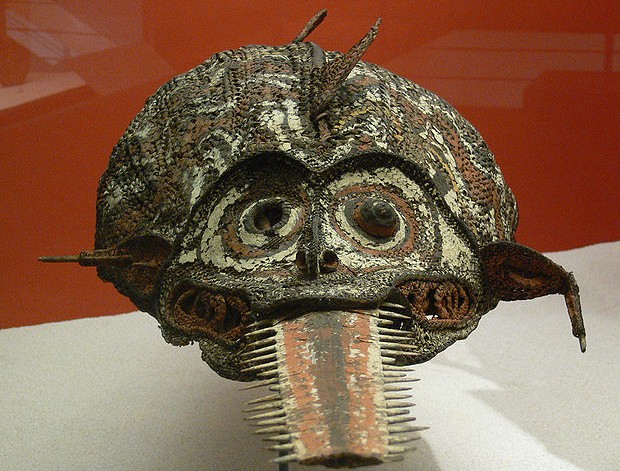
Denis Dutton, who has died of cancer at 66 in his adopted home of New Zealand, brought together in his work a rich cross-section of ideas and experience: literature and ethnography, art and evolution, criticism and cognition. But like many, my first experience of Dutton’s plaited sensibility came at his web site, Arts & Letters Daily. Dutton’s bracing curation of links from the worlds of science, literature, and the arts managed not only to guide me to what riches the web already offered, but to hint at what it might become. From the moment of its appearance in 1998, it became my prototypical Web bookmark. While many budding authors have dreamt of bylines in Granta or the New Yorker, an appearance amidst the clear and cutting descriptions arrayed in those three columns became my gold standard (a mark I’ve met only a very few times; the surprise and satisfaction has never waned). I couldn’t always agree with the sensibility expressed by the choice of links but that being-in-uncertainty made Arts & Letters Daily all the more exhilarating. In a time when the Web seemed headed in the direction of the “Daily Me,” Dutton’s warm-pink, three-column electronic broadsheet insisted that the Web was a remarkable tool for fomenting debate and furthering discourse.
A selection of Dutton’s masterful teasers gestures at the range and ambition of Arts & Letters Daily; take this run from late in 1999:
The classical nude is dead, says Linda Nochlin. She prefers newds, images that combine the idea of nude and with a sense of the lewd …
Seriously now, what would you say to a naked alien? Talk about its pretty spaceship? Ask about its mom and dad? Joel Achenbach has an idea or two …
Bad news for novelists. The fiction computers now produce is increasingly hard to tell from creations of the human mind. Matt Mirapaul explains …
From Internet triumphalism to neoclassicist nostalgia from supercilious skepticism to winking wit Dutton’s teasers could serve as an avant-la-lettre Strunk & White for Twitter, showing what could be achieved with the genre of the dense, laconic link tweet. But cascading from their ornamented masthead, they also gave the latest ideas a seventeenth-century spin. This evocation of the early public sphere clearly was no accident of taste; it served to remind readers that the Internet was but the latest instantiation of a conversation stretching back to the roots of modernity.
The place of ALD in my daily reading has waned; the promise I urgently glimpsed in those three contentious columns found an order of fulfillment in Twitter, where threads of conversation thrive amidst thick tangled skeins of marketing and pop infamy. But long before the rise of social media and the maturing of the blogosphere, Arts & Letters Daily offered a premonition of all that keeps me fastened to the Web to this day and a provocation to make it count, no matter the medium.
 Gearfuse Technology, Science, Culture & More
Gearfuse Technology, Science, Culture & More



There’s some history here: Arts & Letters Daily had an executive editor in its early years, Nancy Strickland. Strickland and Dutton fell out after the sale of ALD to the parent company of Lingua Franca — Strickland sued Dutton, Dutton countersued, & both sides settled out of court.
Two stories on the fallout:
Who Killed Lingua Franca?
Why Arts & Letters is the highbrow hit of the internet
A&L Daily has never waned in my own daily browsing; it’s still on my agenda every morning. A shock and much sadness that this vital, creative person has died at a relatively young age..
Thanks for that, Tim. My short piece is aimed strictly at the influence A&L Daily exerted on me personally; on the character of Denis Dutton’s professional relationships, I’ve nothing informed to say. I had an extended email exchange last year with Dutton around some of the ideas in his book The Art Instinct, and about some of my own writing as well; the discussion was thoroughgoing and critical in the best way, and his part in the exchange was nothing but warm and generous. With the Nancy Strickland story, we’re still sort of in the dark; whatever the settlement was, the two sides don’t seem to have broken their agreement not to discuss it. Dutton may well have been in the wrong; caddishness is inexcusable, and stealing from contributors to online endeavors was as wrong in 2000 as it should be in 2010. It’s impossible to know the full story from those pieces on the dustup, though�the reporting in that Moby Lives item is especially useless, isn’t it?